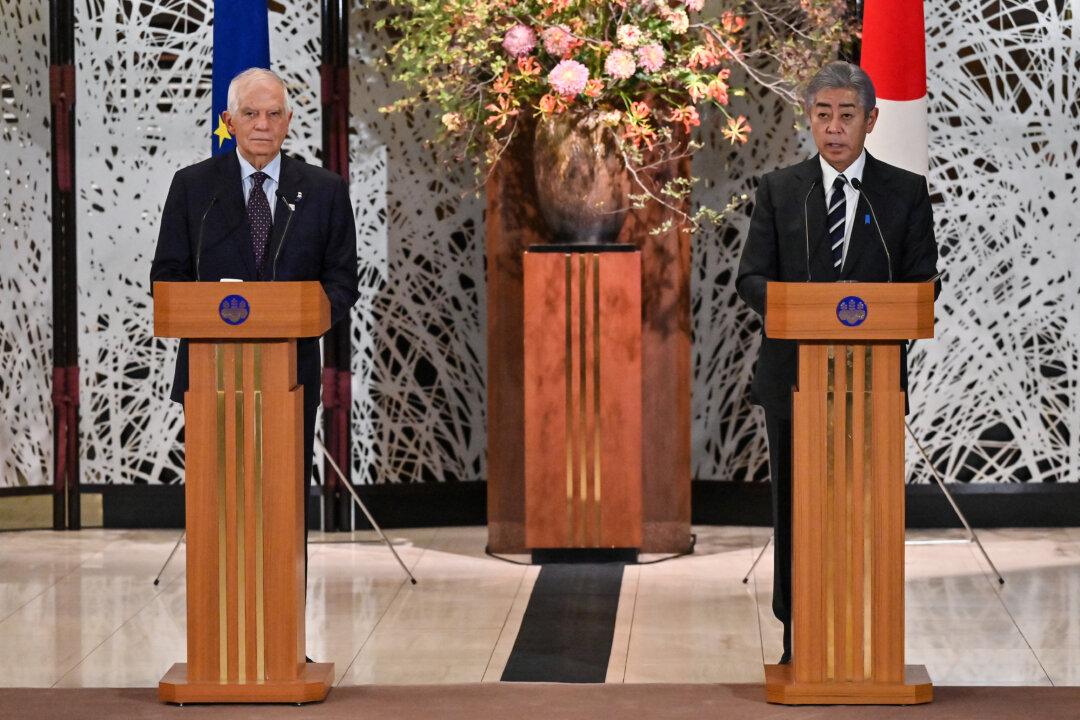Japan and the European Union are launching a new security partnership to lay the groundwork for closer cooperation on a wide-ranging suite of defense and security issues.
The partnership is the first of its kind between the EU and an Indo-Pacific nation, according to Japanese Foreign Minister Takeshi Iwaya and EU foreign policy chief Josep Borrell, who announced the deal on Nov. 1.




